The squad leader is considered the “big brother” of the squad, directly commanding 8 to 10 soldiers. The qualities, abilities, prestige, especially the exemplary role, love and support of the squad leader team for soldiers play an important role in helping the units complete their tasks well. In reality, the vast majority of squad leaders have promoted their roles and responsibilities well. However, there are still issues that need to be addressed.
Many "together" with soldiers
That is the reality of squad leaders, such as: Eating together, living together, sleeping together, working together, training together, playing together, competing together, sharing together, understanding together... Especially, having the same age and military age as the soldiers is a characteristic that greatly affects the performance of the tasks of the "first soldier, last soldier" team.
We went to Regiment 141 and Regiment 165 (Division 312, Corps 1) to learn about how the squad leaders have promoted their roles and responsibilities. At Battalion 2, Regiment 141, Sergeant Nguyen Quoc Quang (born in 1997), Squad Leader of Squad 1, Platoon 2, Company 5, is referred to by soldiers as the "Chief Van" of the Squad. Because Sergeant Nguyen Quoc Quang is not only always exemplary, working side by side with soldiers in all tasks, but is also very close, understanding, ready to listen and share with soldiers. Before welcoming soldiers to the unit in 2023, almost every night, Squad Leader Quang stays up late, with Platoon officers to prepare materials, model learning tools and the best living and studying conditions for new soldiers. Squad Leader Quang considers new soldiers as close comrades, like younger brothers in the family.
 |
Squad leader Tran Van Dung (far left) and soldiers of Squad 8, Platoon 6, Company 2, Battalion 2 (Regiment 141, Division 312) harvest vegetables. Photo: DONG ANH |
Recalling the time when he first joined the army and was wholeheartedly helped by Squad Leader Nguyen Quoc Quang, Private Dang Minh Tung is still emotional. At that time, Tung missed home very much and was extremely bewildered and confused because he had hardly done anything at home. Being criticized by his teammates, Dang Minh Tung was bored. Discovering that, Squad Leader Nguyen Quoc Quang proactively sought to understand, grasp his situation, strengths, weaknesses, thoughts... and took advantage of his free time to call soldier Tung to the stone bench to confide and encourage him. Squad Leader Quang told Tung about his family situation, about his difficulties in the early days of his military service... From then on, soldier Tung trusted and confided all his thoughts and difficulties in performing his duties. Squad Leader Quang's proactive approach, encouragement, enthusiastic guidance and help helped soldier Tung stop being discouraged, gradually do his work well and make clear progress.
Sergeant Nguyen Phuong Nam, Squad Leader of Squad 1, Platoon 2, Company 9, Battalion 6, Regiment 165 affirmed to us: “As the person directly managing and commanding soldiers, if the squad leader is not exemplary and standard in every word and action; does not work together, practice together, compete together, share together... with the soldiers, it is difficult to create closeness, build prestige in the collective to educate , motivate, and convince the brothers. Therefore, I and other squad leaders in the unit must try to be exemplary in both moral qualities, words and actions; practice "mouth talking, hands working, ears listening", always being close, intimate, sharing with the soldiers, helping them feel secure in striving to study and practice".
Being a role model, responsible, loving and willing to “take on the work” for the soldiers are the top secrets for squad leaders to complete their tasks well. Therefore, in almost everything, from training to implementing regimes, rules and labor, increasing production... squad leaders must set an example, do it first, do it more than the soldiers. “Being a big brother is difficult”, however, that is not the difficulty of the squad leader.
Small position, big pressure
We learned that the "difficulties" of squad leaders and battery leaders in the process of carrying out their missions are: Their age and military age are the same as the soldiers, and some squad leaders are even younger than their soldiers; the cultural level of some soldiers is higher than that of their squad leaders; if they are strict, they will be "complained" by the soldiers, but if they indulge the soldiers, they will be criticized by their superiors; squad leaders do not work evenly, in a company or platoon, if there are a few squad leaders with a lenient and easygoing personality, it will be difficult for the other squad leaders to work seriously and substantially...
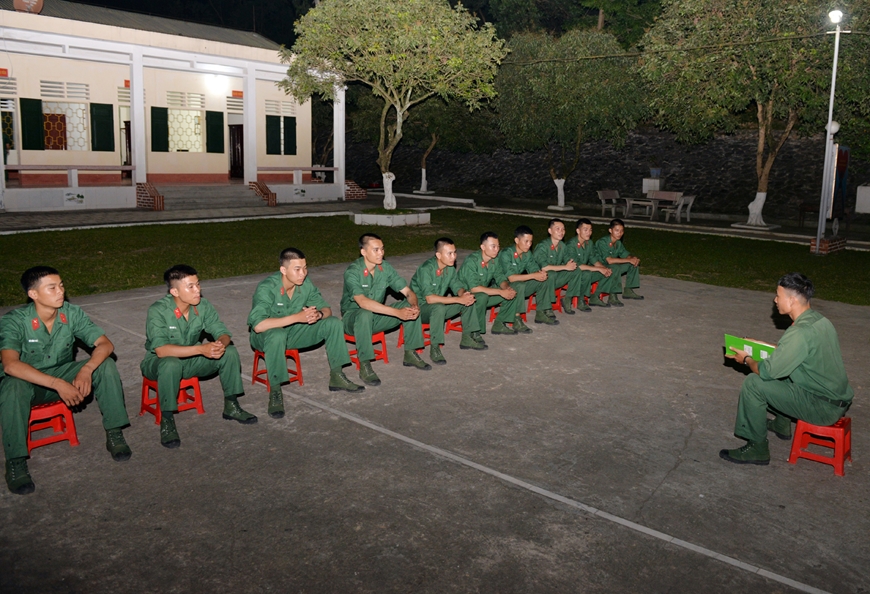 |
| Evening activities of Squad 6, Platoon 8, Company 11, Battalion 6 (Regiment 165, Division 312). Photo: DONG ANH |
Sergeant Nguyen Phi Truong (Squad Leader of Squad 5, Platoon 2, Company 1, Battalion 4, Regiment 165) was assigned the task of managing soldiers who joined the army, some of whom were older than him, as soon as he finished the squad leader training course at the 1st Corps Military School. At first, there were times when the soldiers in the Squad were "indifferent", like "fish of the same school", joking around both during activities and during the performance of tasks. Sergeant Nguyen Phi Truong shared: "I always have to try twice as hard, even have to directly do many "unnamed tasks" to set an example, making all soldiers in the Squad respect and trust me, working together to train and complete the task".
“The hammer and the anvil” is the biggest pressure on the squad leader. Most soldiers want the squad leader to be “easy-going” in management and command. But if the training of soldiers is not strict, leading to low learning and training results, they will be criticized by the platoon and company officers. On the contrary, if they maintain strictness and strictness, soldiers will not like it, disagree, and even react negatively and secretly oppose it, especially when the squad operates independently. For example, when the squad leader maintains the training of the team regulations without the company and platoon officers nearby, if the squad leader does not have enough prestige and courage, it will be very difficult to command.
Therefore, the experience of many squad leaders and company and platoon officers is: Squad leaders must know how to balance pressures, maintain working principles but also need to know how to educate and convince soldiers to understand the need to maintain strict implementation of rules and regulations, cannot be lenient, compromise in work, cannot give special privileges or prioritize any case. On the other hand, platoon and company officers need to understand psychology, sympathize and most importantly, must always respect, listen and share with squad leaders.
According to Lieutenant Colonel Nguyen Huy Khoi, Commander of Regiment 165, currently, the training time for infantry squad leaders is only 3 months and the time in service as a soldier (both 24 months) also has a certain impact on the quality and results of the squad leader's mission performance.
BOX: Colonel Tran Van Bich, Deputy Division Commander, Chief of Staff of Division 312, assessed: Basically, the quality of task performance of squad leaders in units under the Division is currently relatively good, many comrades have very scientific methods of managing and maintaining squads. However, as the lowest-ranking commanders, they also face many difficulties in managing and operating squads; especially some squad leaders join the army with soldiers, train new soldiers together, which makes it easy for them to lack determination, be considerate, avoid, and cover up for soldiers...
( more)
DUY DONG - TRAN ANH - NGOC LAM
Source


![[Photo] Keep your warehouse safe in all situations](https://vphoto.vietnam.vn/thumb/1200x675/vietnam/resource/IMAGE/2025/10/1/3eb4eceafe68497989865e7faa4e4d0e)


![[Photo] President of the Cuban National Assembly visits President Ho Chi Minh's Mausoleum](https://vphoto.vietnam.vn/thumb/1200x675/vietnam/resource/IMAGE/2025/10/1/39f1142310fc4dae9e3de4fcc9ac2ed0)

![[Photo] Hanoi morning of October 1: Prolonged flooding, people wade to work](https://vphoto.vietnam.vn/thumb/1200x675/vietnam/resource/IMAGE/2025/10/1/189be28938e3493fa26b2938efa2059e)




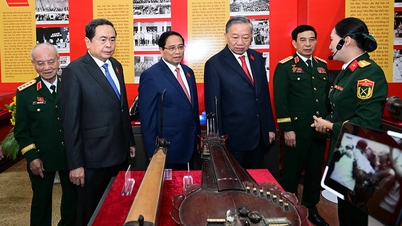

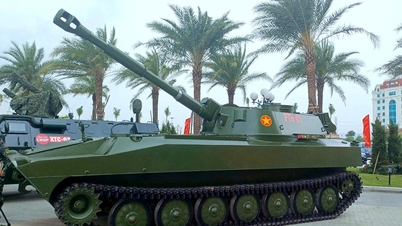
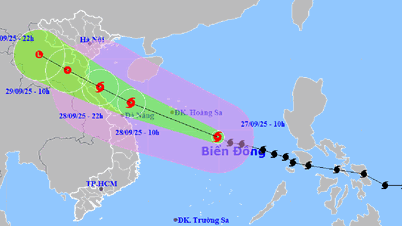




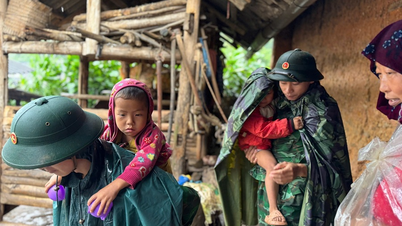
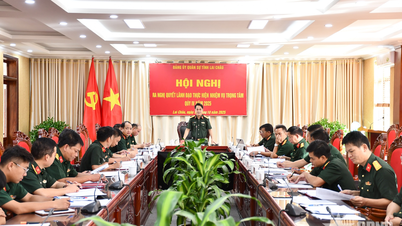
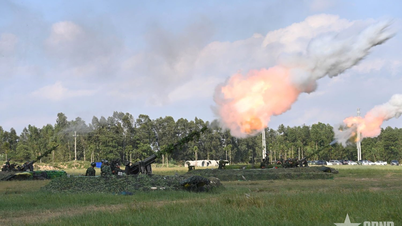
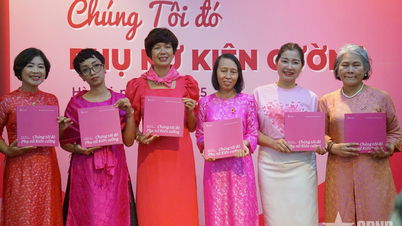

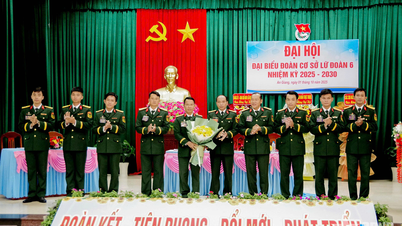

































































Comment (0)